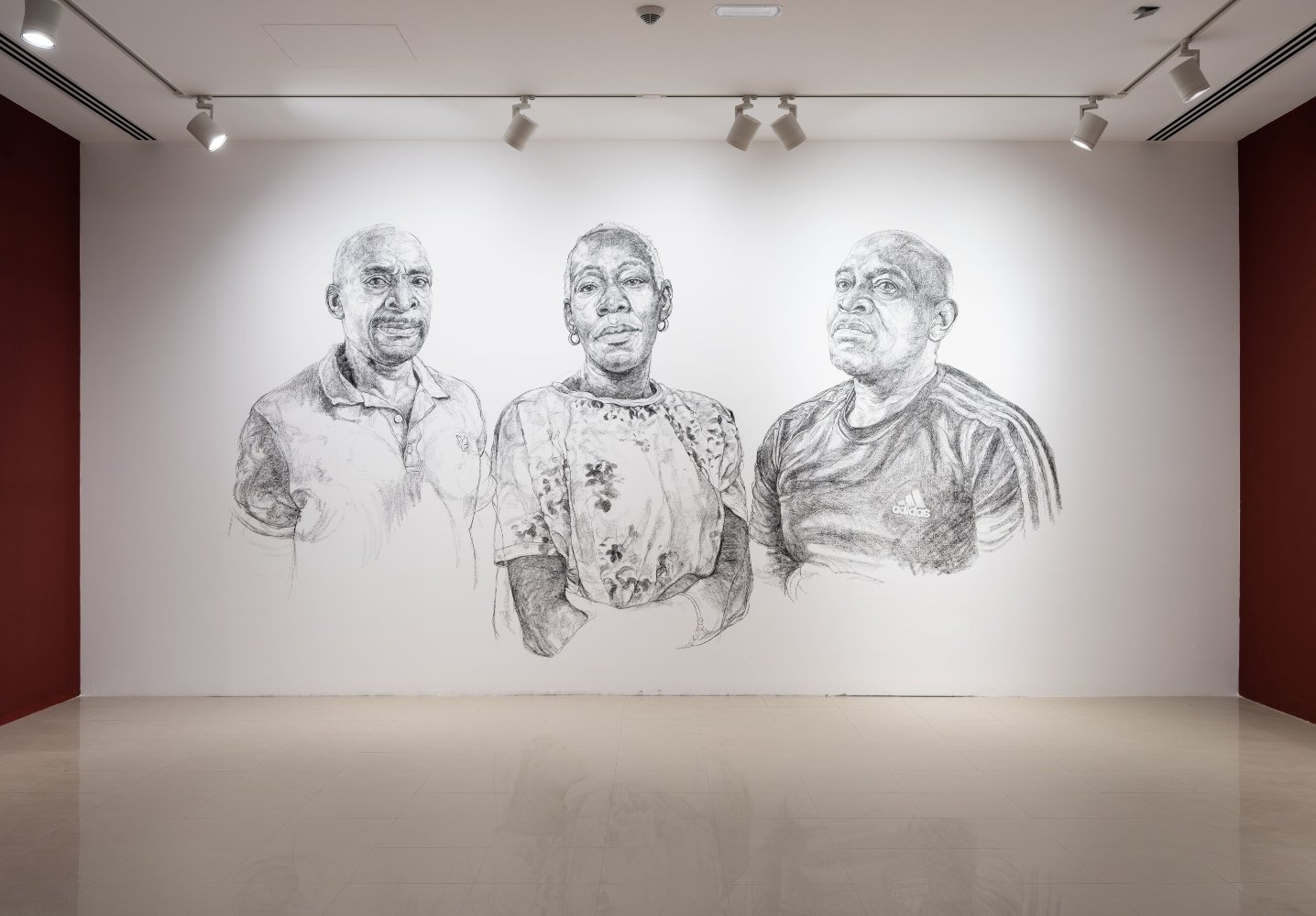
This morning, Tate Britain made its annual announcement of the four artists shortlisted for this year’s Turner Prize: Jesse Darling, Ghislaine Leung, Rory Pilgrim, and Barbara Walker. Their work will be exhibited at Towner Eastbourne museum in East Sussex from September 28 to April 14, 2024, with the winner later crowned at an award ceremony on December 5.
British artist Barbara Walker, 58, reflects on her life and the experiences of those around her on a range of scales, from intimate studies on paper to large murals. She was nominated for her “Burden of Proof,” exhibited at the current Sharjah Biennial (until June 11), a series of sensitive charcoal portrayals of people impacted by the Windrush Scandal, which saw hundreds of Caribbean workers who arrived to the U.K. between 1948 and 1971 wrongly detained or deported. Identity papers documenting the sitters’ right to remain have been layered into some of Walker’s portraits.
Ghislaine Leung, 42, a Swedish artist based in London, was nominated for the show “Fountains” at Simian in Copenhagen earlier this year. Known for her use of a “score,” or a set of instructions, in her artworks, Leung’s direction is always open to interpretation by the specific gallery working in collaboration with her. For example, the score for Fountains (2022) read, “a fountain installed in the exhibition space to cancel sound,” which led Simian to make use of its subterranean location beneath a public fountain to allow water to cascade down into the gallery space.
Installation view of Jesse Darling, “No Medals, No Ribbons” at Modern Art Oxford, 2022. Photo: Ben Westoby, © Modern Art Oxford.
The British-born, Berlin-based artist Jesse Darling, 41, makes installations from a range of materials and was nominated for two solo exhibitions from 2022: “No Medals, No Ribbons” at Modern Art Oxford and “Enclosures” at Camden Art Centre in London. The Oxford show was the largest of his career, and featured precarious sculptures stitched together using everyday items that had been strangely anthropomorphized, as in the case of plastic bags with metal limbs or a roller-coaster track rewrought into a misshapen, skeletal form.
The British artist Rory Pilgrim, 35, who works between the U.K. and The Netherlands, was nominated for RAFTS, a film commissioned last year by the Serpentine in London. Using music and song, he explores the symbol of a raft as a last resort structure during challenging times brought on by the pandemic and the climate crisis. It features perspectives voiced by eight residents of Barking and Dagenham in East London.
Though there is no obvious common thread between the shortlisted artists as was the case last year, when the cohort were all women or non-binary, but Tate Britian’s director Alex Farquharson commented that vulnerability was a shared theme, with each of the artworks speaking to “social themes, social structures, as well as a real sense of tenderness and humanity.”
One of the world’s most important accolades for contemporary art since 1984, the Turner Prize is known for showcasing radical artistic practices that have historically sparked debate. This year’s jury, chaired by Farquharson, comprises Martin Clark, director of Camden Art Centre, Cédric Fauq, chief curator at Capc Musée d’Art Contemporain de Bordeaux, Melanie Keen, director of the Wellcome Collection and Helen Nisbet, artistic director at Art Night.
The award ceremony on December 5 will take place at Eastbourne’s Winter Gardens, with a prize of £25,000 for the winner and £10,000 for each runner-up.